第555章
(1) Reland takes notice here, very justly, how Josephus's declaration, that it was his great concern not only to write "an agreeable, an accurate," and "a true" history, but also distinctly not to omit any thing [of consequence], either through "ignorance or laziness," implies that he could not, consistently with that resolution, omit the mention of [so famous a person as]
"Jesus Christ."
(2) That the famous Antipater's or Antipas's father was also Antipater or Antipas (which two may justly be esteemed one and the same frame, the former with a Greek or Gentile, the latter with a Hebrew or Jewish termination) Josephus here assures us, though Eusebias indeed says it was Herod.
(3) This "golden vine," or "garden," seen by Strabo at Rome, has its inscription here as if it were the gift of Alexander, the father of Aristobulus, and not of Aristobulus himself, to whom yet Josephus ascribes it; and in order to prove the truth of that part of his history, introduces this testimony of Strabo; so that the ordinary copies seem to be here either erroneous or defective, and the original reading seems to have been either Aristobulus, instead of Alexander, with one Greek copy, or else "Aristobulus the son of Alexander," with the Latin copies; which last seems to me the most probable.For as to Archbishop Usher's conjectures, that Alexander made it, and dedicated it to God in the temple, and that thence Aristobulus took it, and sent it to Pompey, they are both very improbable, and no way agreeable to Josephus, who would hardly have avoided the recording both these uncommon points of history, had he known any thing of them; nor would either the Jewish nation, or even Pompey himself, then have relished such a flagrant instance of sacrilege.
(4) These express testimonies of Josephus here, and Antiq.B.
VIII.ch.6.sect.6, and B.XV.ch.4.sect.2, that the only balsam gardens, and the best palm trees, were, at least in his days, near Jericho and Kugaddi, about the north part of the Dead Sea, (whereabout also Alexander the Great saw the balsam drop,)show the mistake of those that understand Eusebius and Jerom as if one of those gardens were at the south part of that sea, at Zoar or Segor, whereas they must either mean another Zoar or Segor, which was between Jericho and Kugaddi, agreeably to Josephus: which yet they do not appear to do, or else they directly contradict Josephus, and were therein greatly mistaken:
I mean this, unless that balsam, and the best palm trees, grew much more southward in Judea in the days of Eusebius and Jerom than they did in the days of Josephus.
(5) The particular depth and breadth of this ditch, whence the stones for the wall about the temple were probably taken, are omitted in our copies of Josephus, but set down by Strabo, B.
XVI.p.763; from whom we learn that this ditch was sixty feet deep, and two hundred and fifty feet broad.However, its depth is, in the next section, said by Josephus to be immense, which exactly agrees to Strabo's description, and which numbers in Strabo are a strong confirmation of the truth of Josephus's description also.
(6) That is, on the 23rd of Sivan, the annual fast for the defection and idolatry of Jeroboam, "who made Israel to sin;" or possibly some other fast might fall into that month, before and in the days of Josephus.
(7) It deserves here to be noted, that this Pharisaical, superstitious notion, that offensive fighting was unlawful to Jews, even under the utmost necessity, on the Sabbath day, of which we hear nothing before the times of the Maccabees, was the proper occasion of Jerusalem's being taken by Pompey, by Sosius, and by Titus, as appears from the places already quoted in the note on Antiq.B.XIII.ch.8.sect.1; which scrupulous superstition, as to the observation of such a rigorous rest upon the Sabbath day, our Savior always opposed, when the Pharisaical Jews insisted on it, as is evident in many places in the New Testament, though he still intimated how pernicious that superstition might prove to them in their flight from the Romans, Matthew 25:20.
(8) This is fully confirmed by the testimony of Cicero, who:
says, in his oration for Flaecus, that "Cneius Pompeius, when he was conqueror, and had taken Jerusalem, did not touch any thing belonging to that temple."(9) Of this destruction of Gadara here presupposed, and its restoration by Pompey, see the note on the War, B.I.ch.7.
sect.7.
(10) Dean Prideaux well observes, "That notwithstanding the clamor against Gabinius at Rome, Josephus gives him a able character, as if he had acquitted himself with honor in the charge committed to him" [in Judea].See at the year 55.
(11) This history is best illustrated by Dr.Hudson out of Livy, who says that "A.Gabinius, the proconsul, restored Ptolemy of Pompey and Gabinius against the Jews, while neither of them say any thing new which is not in the other to his kingdom of Egypt, and ejected Archelaus, whom they had set up for king," &c.See Prid.at the years 61 and 65.
(12) Dr.Hudson observes, that the name of this wife of Antipater in Josephus was Cypros, as a Hebrew termination, but not Cypris, the Greek name for Venus, as some critics were ready to correct it.